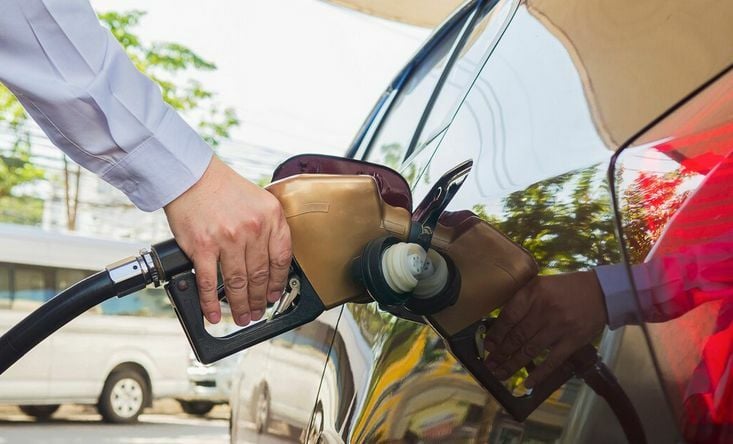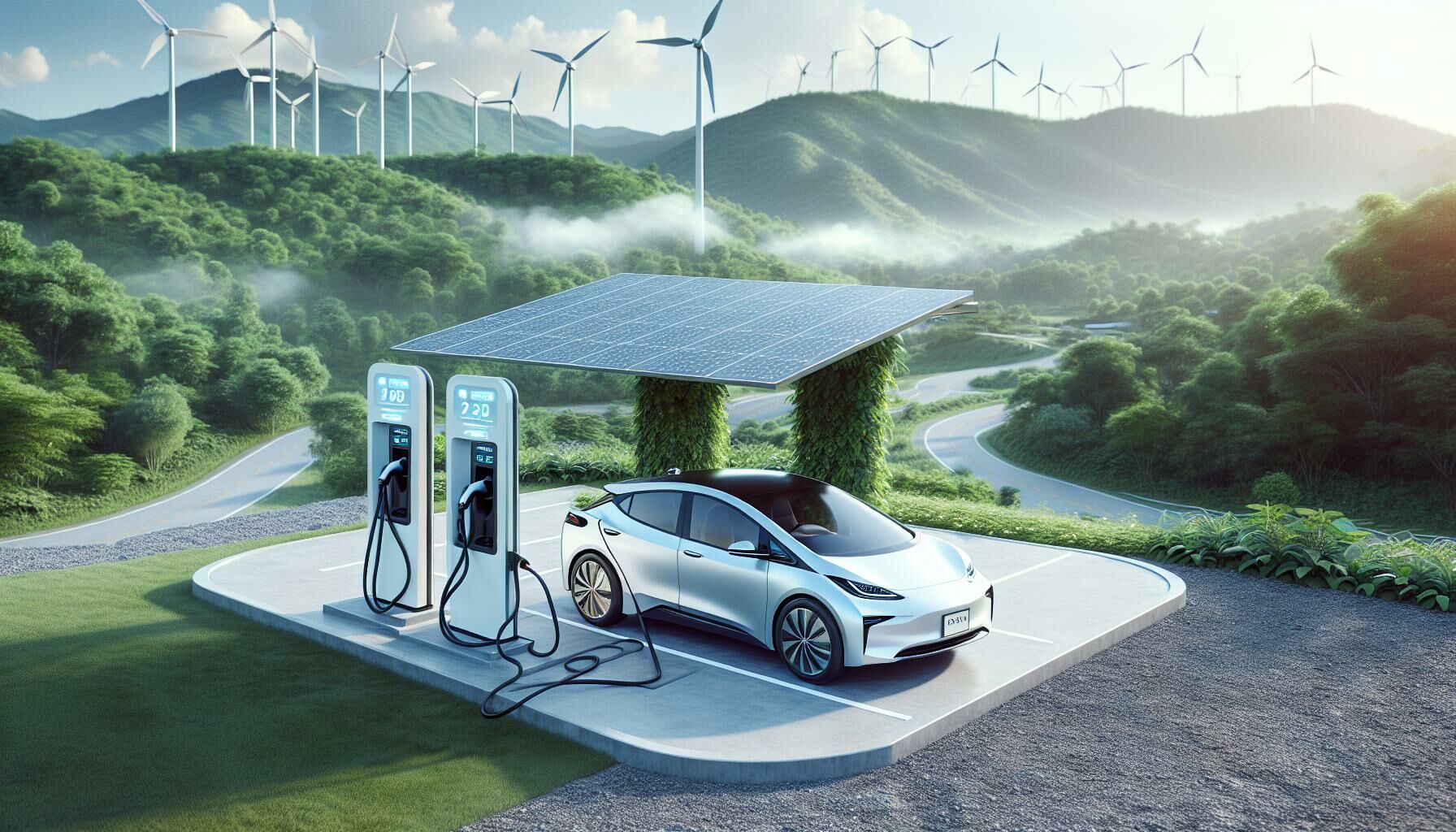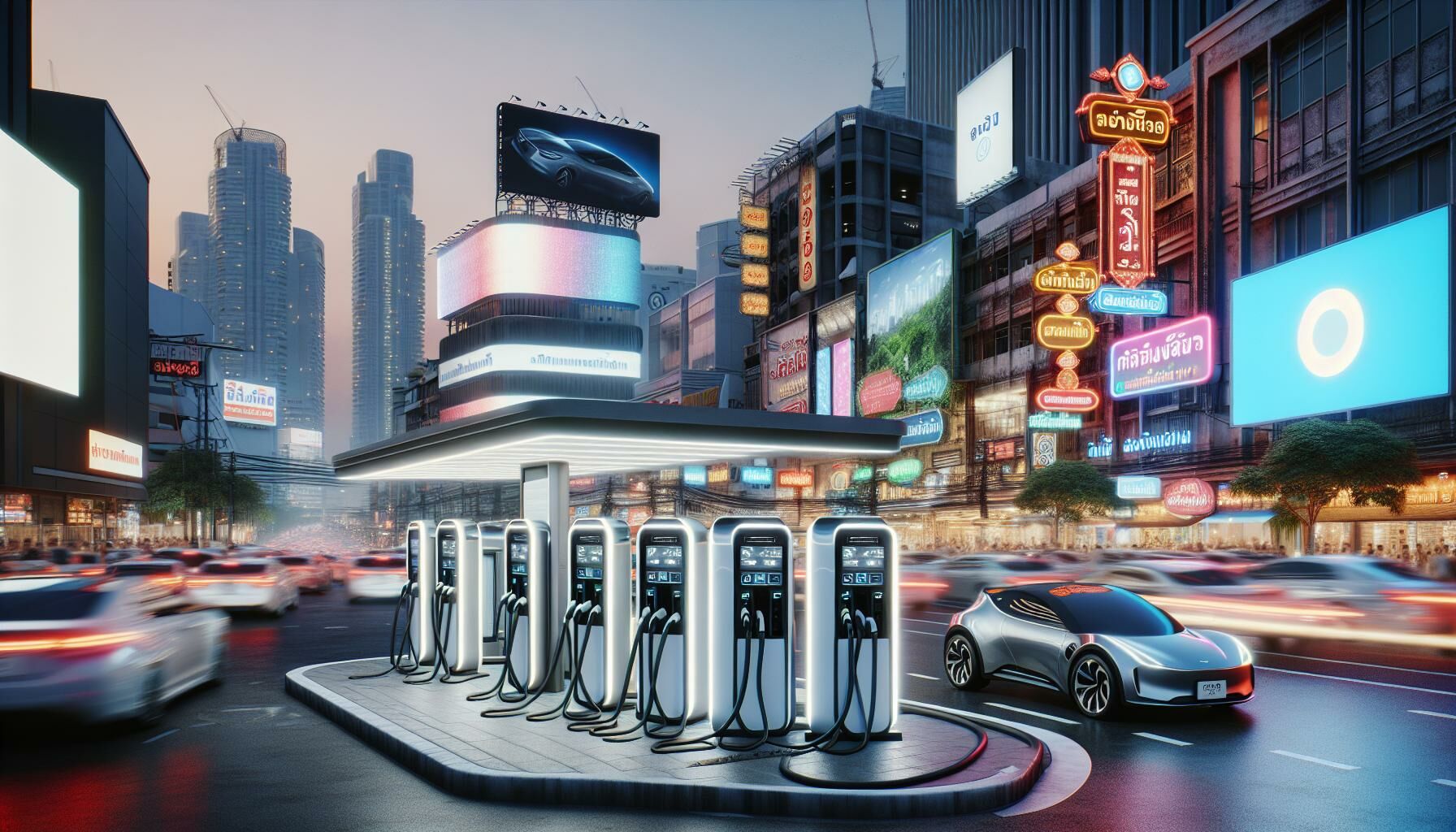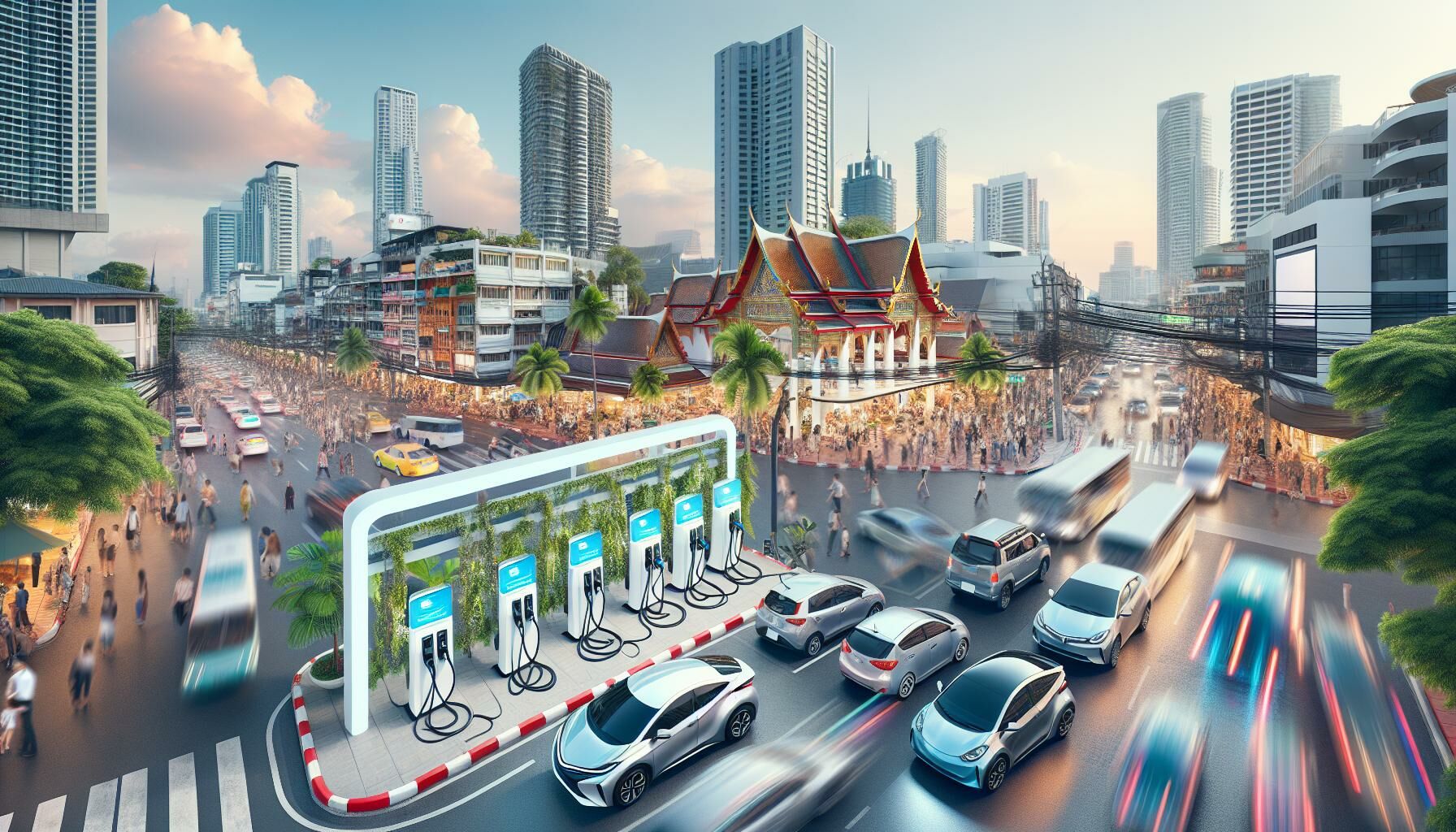The future of fuel in Thailand: Innovating for sustainability

Thailand is undergoing a pivotal transformation in energy production, transitioning from fossil fuels to innovative and sustainable alternatives. Over the past four decades, the energy landscape has seen considerable evolution, featuring significant measures such as the adoption of ethanol and biodiesel blends. These initiatives have established Thailand as a regional leader in renewable energy.
Exploring alternative fuel options

Biofuels
Biofuels are super important in Thailand’s energy scene. They come from vegetable oil and animal fats, so they’re renewable and help cut down on fossil fuel use. The government is all about pushing biodiesel and ethanol because they’re better for the environment. For example, Thailand’s National Biofuels Committee wants to ramp up biodiesel production to 14 million litres a day by 2037.
Hydrogen fuel cells (HFCs)
Hydrogen fuel cells could totally change up Thailand’s energy game. They make electricity by mixing hydrogen and oxygen, and the only thing they give off is a mist. Energy bigwigs in Thailand are throwing money into hydrogen fuel cell tech to boost their renewable energy goals and help cut down on carbon emissions.
Electric vehicles (EVs)
Electric vehicles are really taking off in Thailand as a green alternative, helping cut down on city air pollution and reducing the country’s need for oil. The government’s offering big incentives to get more people to switch to EVs. At COP 27, Thailand set a big goal: They want EVs to make up 30% of all car production by 2030.
Biogas
In Thailand, they’re really focusing on biogas to get better at managing waste and upping their energy game. Basically, biogas comes from breaking down organic waste without oxygen, and it works as a natural gas substitute. The country’s got this Alternative Energy Development Plan that’s all about ramping up biogas power setups, aiming for a total of 600 MW capacity.
Challenges faced by the fuel industry in Thailand

Environmental and Economic Challenges
Thailand’s fuel industry grapples with both environmental and economic challenges. Conventional fuel consumption leads to significant pollution, impacting air quality and public health. Additionally, the country has a high energy reserve margin of 55%, far beyond the internationally accepted 15%, reflecting generation overcapacity (nationthailand.com).
Economic challenges stem from the Oil Fuel Fund’s current state. To keep fuel prices stable, especially following the Russia-Ukraine war, the fund accrued substantial loans. The fund now has a deficit of approximately 229.2 billion baht. This financial strain adds pressure to manage future fuel subsidies.
Global oil prices and their impact on Thailand
Global oil prices directly affect Thailand’s fuel industry. Fluctuations in international markets drive domestic price volatility. The Russia-Ukraine conflict highlighted this issue, causing severe disruptions. To mitigate the impact on consumers, Thailand relies heavily on the Oil Fuel Fund.
However, stabilising fuel prices through loans is not sustainable long-term. The increasing adoption of electric vehicles (EVs) under the 30@30 policy introduces another dimension. This policy aims for EVs to constitute 30% of automotive production by 2030. As a result, reduced consumption of conventional fuel is expected.
These challenges necessitate a balanced approach to managing Thailand’s fuel industry in the face of fluctuating global oil prices and shifting domestic fuel consumption patterns.
The role of private sector

Contributions of private companies to the fuel industry
Private companies play a significant role in shaping the future of fuel in Thailand. Organisations are investing in research and development to create more efficient fuel alternatives. For instance, several entities focus on enhancing biofuels like biodiesel and ethanol. Research in hydrogen fuel cell technology is also seeing substantial investment. These companies contribute to reducing the environmental footprint of the energy sector.
Additionally, large vehicle manufacturers are developing electric vehicles (EVs) to align with government policies. They are setting up infrastructure for EV charging stations, which encourages more consumers to switch from conventional fossil fuels to electric power. This shift supports Thailand’s 30@30 policy and paves the way for a greener future.
Opportunities for innovation and investment
There are numerous opportunities for innovation and investment in Thailand’s fuel industry. Developing new fuel technologies and improving existing ones can help meet future fuel demands. Private companies are exploring ways to make hydrogen fuel production both viable and scalable. This could revolutionise the automotive sector, particularly for larger vehicles like trucks and buses.
The EV market presents a lucrative investment opportunity. Establishing robust EV infrastructure, including charging stations, accelerates EV adoption. This infrastructure is essential for supporting the country’s ambitious targets. This proactive approach by the private sector could significantly impact the sustainability and efficiency of fuel in Thailand.
Future predictions

Expert opinions on the future of fuel in Thailand
Experts believe that Thailand’s fuel landscape is on the cusp of a significant transition. The growth of electric vehicles (EVs) alone could reduce conventional fuel consumption markedly. Authorities estimate that by 2030, EVs might comprise 30% of all vehicles in the country. This transition is driven by strong governmental support and initiatives aimed at promoting EV usage and infrastructure development. Hydrogen fuel is increasingly emerging as a viable alternative. Prominent automotive manufacturers are investing substantial funds into hydrogen fuel cell research.
Potential scenarios and impacts on the economy
Shift in energy use will significantly affect Thailand’s economy. As EV adoption rises, petrol and diesel consumption will decline. According to the Department of Energy Business, this drop might become evident within the next decade. This transition away from conventional fuel could reduce Thailand’s oil import bills, contributing to an improved trade balance. Nevertheless, the decline in fossil fuel consumption might impact revenue from fuel taxes. The government must explore alternative revenue streams to offset this potential loss.
Latest Thailand News
Follow The Thaiger on Google News:


























